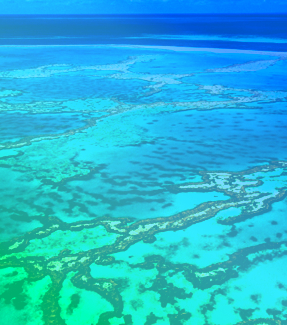UNESCO calls for Reef work
 UNESCO has called for stronger climate targets to preserve the Great Barrier Reef.
UNESCO has called for stronger climate targets to preserve the Great Barrier Reef.
In a report released this week, the organisation emphasised the need for significant action to maintain the Reef's status as a World Heritage site.
While the Reef has avoided being listed as "in danger" for now, Australia must submit a progress report by February 2025.
The World Heritage Committee could reconsider the Reef’s status in 2026 if improvements are not evident.
The report expressed “high concern” over the rate of land clearing in areas that feed into the reef, noting that this practice conflicts with goals to reduce sediment and nutrient runoff. It also highlighted “utmost concern” about a recent mass coral bleaching event, urging Australia to disclose the extent of coral death promptly.
“The current bleaching occurs as part of the fourth global mass bleaching, likely impacting at least 30% of the world heritage-listed coral reef properties,” UNESCO said.
The group stressed the importance of urgent and sustained action to enhance the reef’s resilience amid climate change.
The report, co-authored with the International Union for Conservation of Nature, includes “draft decisions” for the upcoming World Heritage Committee meeting in India.
These decisions include recommendations for continued pollution reduction and control of coral-eating starfish outbreaks.
The draft decision can be read in PDF form, here, starting on page 59.
This push for action follows a challenging summer for the Reef, marked by severe bleaching, cyclones, and crown-of-thorns starfish outbreaks.
Government scientists reported that nearly 75 per cent of surveyed reefs experienced at least 10 per cent coral bleaching, with some areas recording unprecedented levels of heat stress.
Despite these issues, Australia's Minister for the Environment and Water, Tanya Plibersek, hailed the UNESCO decision as a “huge win”.
“We are acting on climate change, improving local water quality, protecting our marine life, dealing with invasive species, and investing a record amount of money into reef programs,” she said.
However, environmental groups see the decision as a wake-up call.
The World Wide Fund for Nature-Australia has released images of bleached and dead coral, urging the government to adopt a 90 per cent emissions reduction target by 2035 and halt new fossil fuel projects. Current targets aim for a 43 per cent reduction by 2030 and net zero by 2050.








 Print
Print